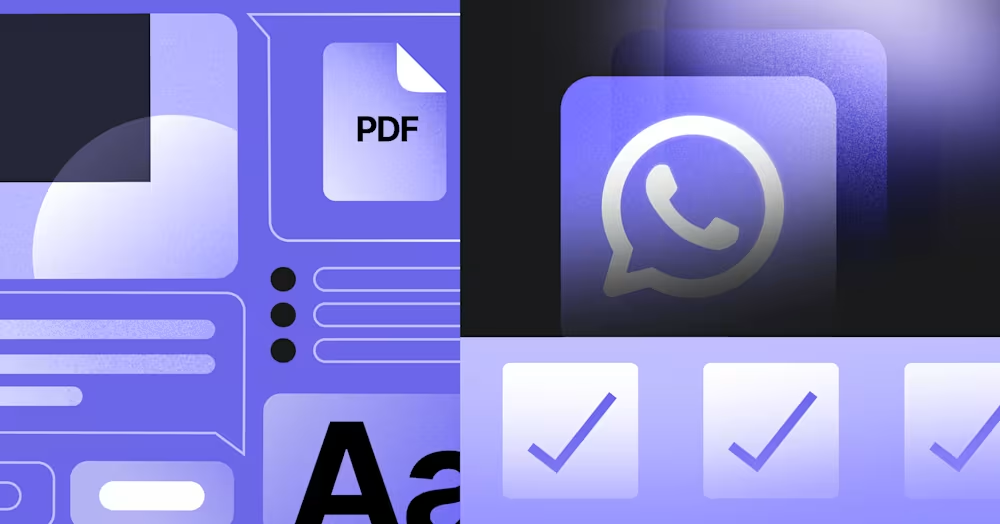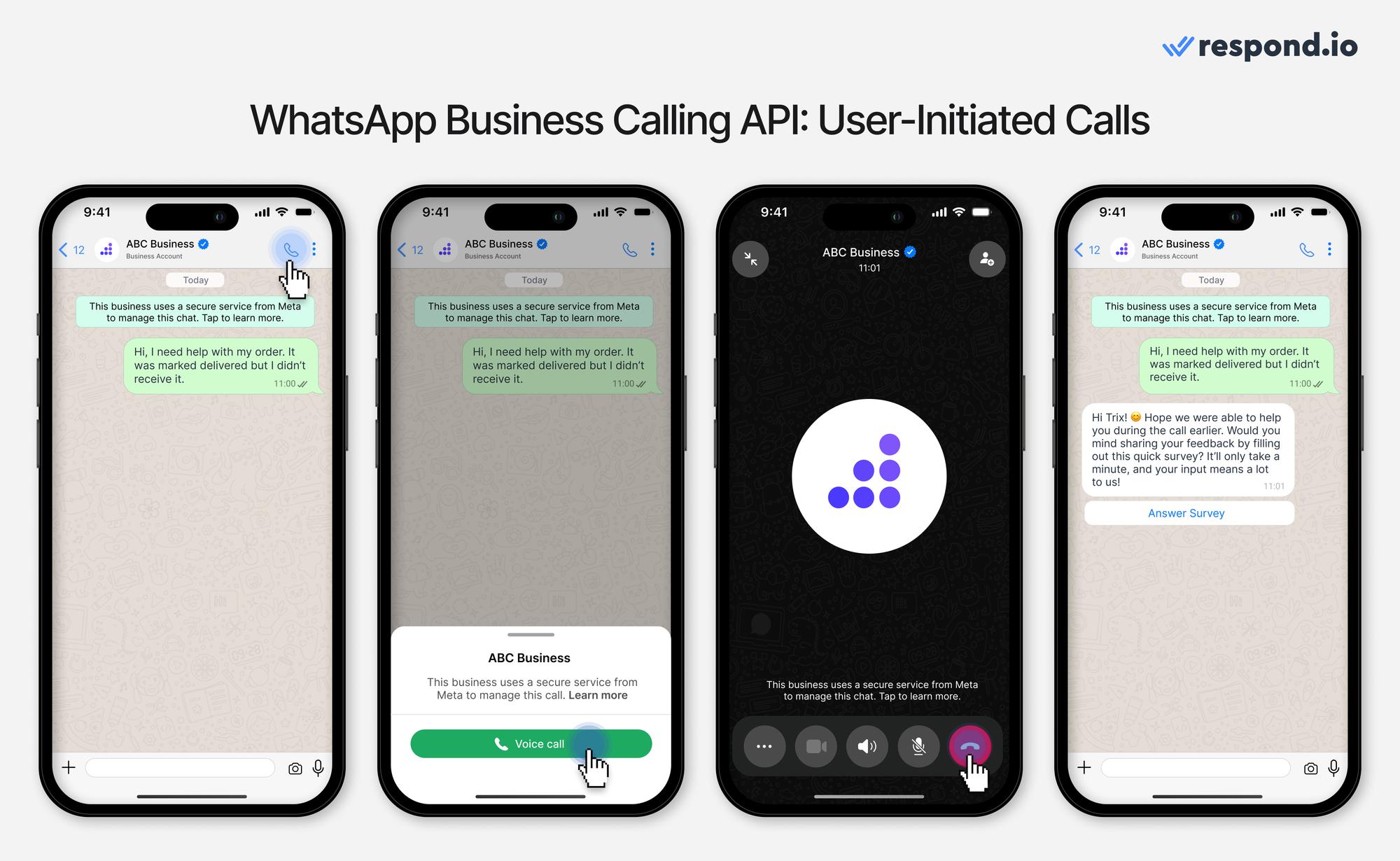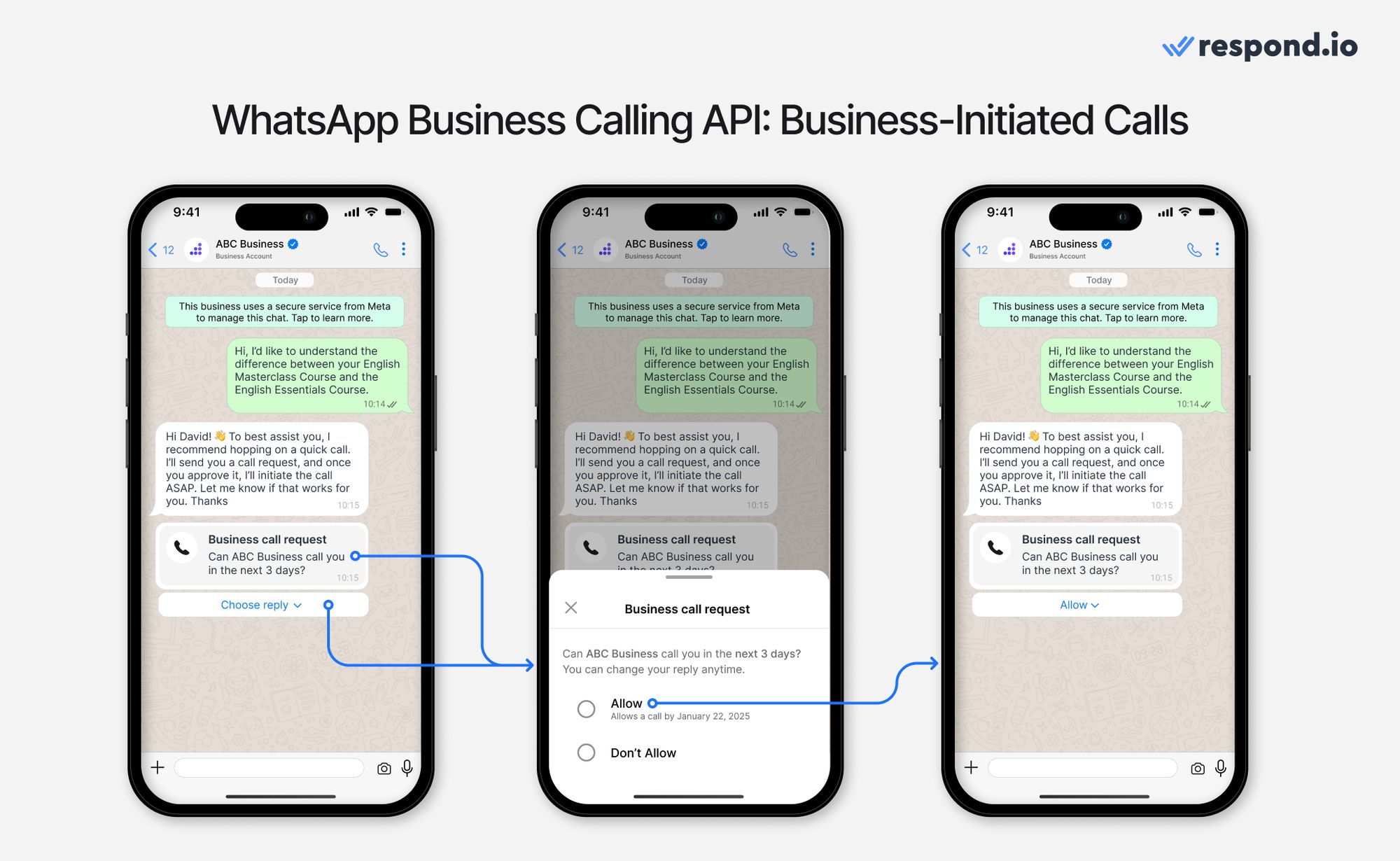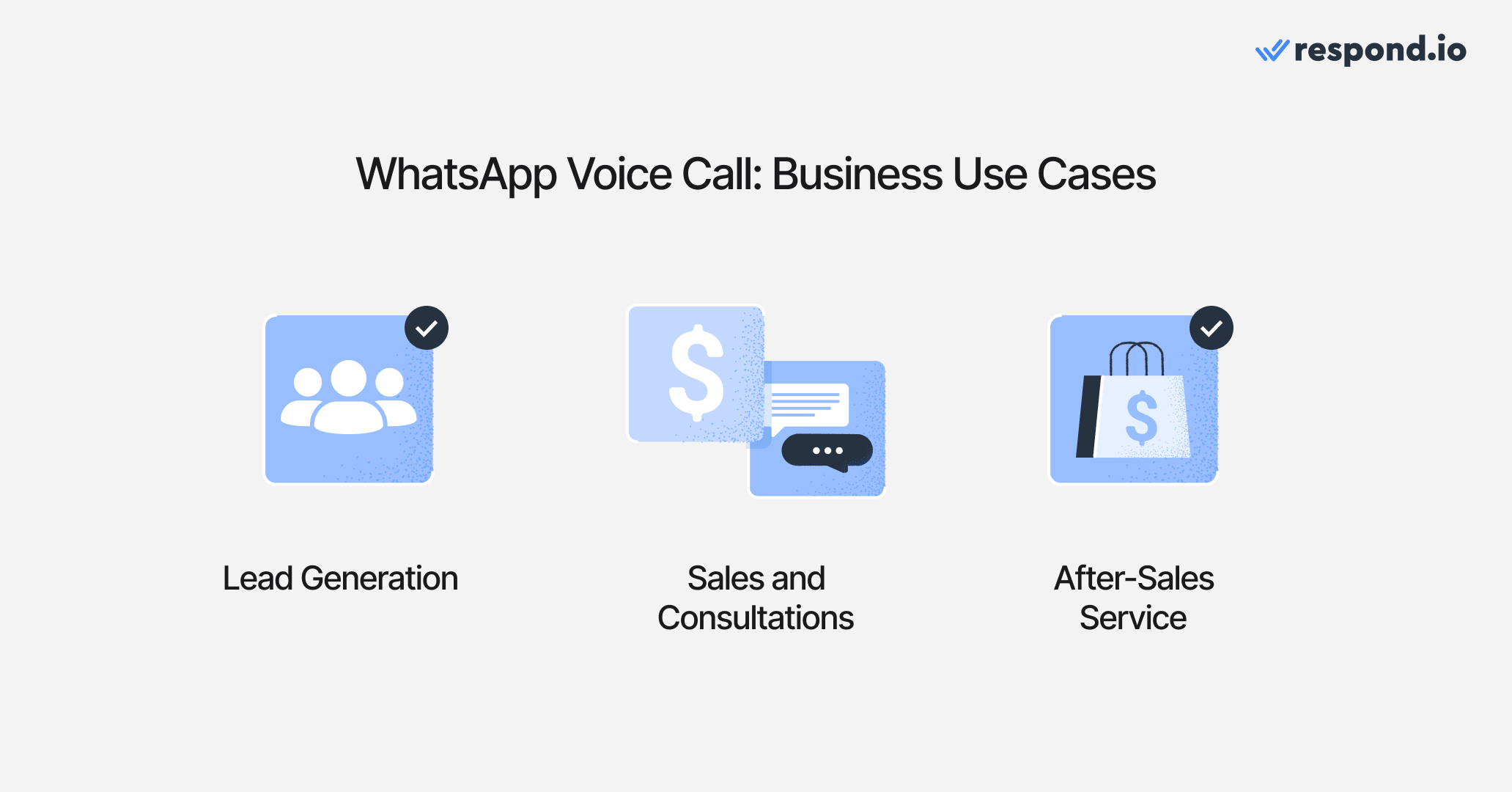
WhatsApp Message Template: A How-to Guide with 13 Examples
Businesses can't send WhatsApp messages after 24 hours unless they use WhatsApp Message Template. Learn how to format and send template messages plus examples.

WhatsApp voice calls have made customer communication more seamless, enabling businesses and customers to connect in real-time from anywhere in the world. But how can businesses make the most of this feature? This blog breaks down everything you need to know about WhatsApp voice calls, its benefits, key use cases and how to access the new WhatsApp Business Calling API.
WhatsApp voice call is a feature that allows customers and businesses to make high-quality audio calls over WhatsApp, eliminating traditional phone call charges. Unlike regular phone calls, WhatsApp voice calls rely on an internet connection, offering flexibility, cost efficiency and more.
WhatsApp Calling delivers voice over the internet like traditional VoIP, but it works directly inside WhatsApp where conversations already happen. There is no complex setup, no switching between tools and no cost for inbound calls.
In this section, we’ll detail everything you need to know about making calls on both the Business App and API.
Making calls using the WhatsApp Business App is straightforward. You can call any number in your contact list without any costs. All you need is an internet connection and you’re good to go.
For businesses using the WhatsApp Business App to communicate with customers, making a voice call is easy. All you have to do is click on the call icon at the top right corner of the chat inbox to call customers and customers can do the same on their WhatsApp App. There are no restrictions or limitations involved, unlike the API.
Businesses can have access to this feature only through a few selected WhatsApp Business Solution Providers like respond.io.
To make calls using the WhatsApp API, there are 3 main things you should know: The type of calls, the availability of WhatsApp business calling API in your region and how calls are charged. Let’s dive into each of them.
The WhatsApp business calling API supports two types of calls:
Outbound Calls (Business-Initiated): Calls initiated by the business, which require user permission beforehand.
Inbound Calls (User-Initiated): Calls initiated by the customers to a business.
Now, let’s look at how these calls work.
To initiate a call, businesses must send a permission request during an active Marketing, Utility, Authentication, Service or Free Entry Point conversation.

A business can send up to one permission request within 24 hours and two permission requests over seven days.
These limits reset once a call between the business and the customer is successfully connected.
After the contact grants permission, the business must make the call within 72 hours.

User-initiated calls are straightforward. Customers can start a call by clicking the call button in their WhatsApp app, through deep links embedded on business websites, apps or QR codes or via interactive messages with a click-to-call action. Businesses can choose to accept or decline these calls.
WhatsApp Business Calling API is now available in most regions worldwide. Businesses already using WhatsApp messaging with at least one verified sender/number can now enhance their communication capabilities by adding voice calls.
To leverage this feature effectively, businesses should have clear inbound and outbound calling use cases, such as:
Resolving customer service escalations
Conducting complex sales or marketing calls
Utility calls for last-mile communication, such as customers calling delivery drivers to confirm or adjust orders.
Calls via the API are charged based on various factors. Here’s a breakdown:
Call Type: The charges vary based on the type of call, business-initiated or user-initiated. User-initiated calls are free, whereas business-initiated calls aren't.
Region: Costs vary depending on the country code of the customer calling or being called.
Usage-Based Rates: Rates are time-based and calculated per second.
Now that you know everything about WhatsApp voice calls, let’s explore how respond.io WhatsApp Business API Calling can benefit your business.
Turn conversations into customers with respond.io's official WhatsApp API ✨
Manage WhatsApp calls and chats in one place!
WhatsApp voice calls on respond.io offer several advantages that enhance business communication, improve customer engagement and streamline operations. Here’s how businesses can benefit:
Let customers call from WhatsApp—the app they already trust—while your team answers from respond.io's inbox. No extra tools, training, or context switching needed. It’s just a natural extension of the conversation.
Customer-initiated calls are 100% free for your business—no per-minute fees or call charges. Save budget while staying reachable to more customers.
Customers can call you with one tap, straight from the chat. No app switching, no copy-pasting numbers. Your team picks up the call in the same interface from which they message.
Available wherever WhatsApp works—no setup delays or telco restrictions. Customers worldwide can reach you instantly, for free, making it perfect for global brands and distributed teams.
Next, let's explore how you can use WhatsApp voice calls.
WhatsApp voice calls can be used in various scenarios to enhance business operations and customer interactions. Below are some of the key ways businesses can use WhatsApp calls effectively.

WhatsApp voice calls enable businesses to connect with potential customers when their interest is at its peak. When a prospect reaches out or shows curiosity about a product or service, a quick call can help businesses capture their attention, clarify questions and establish trust. This immediate engagement ensures leads don't lose interest or move on to competitors.
If a lead needs more time to decide, businesses can schedule follow-up calls to provide additional guidance, build trust and nurture the relationship through the sales funnel. As a result, businesses can enhance lead confidence and increase the likelihood of conversion.
For businesses offering products or services that require personalized consultations, WhatsApp voice calls enable seamless one-on-one engagement. Sales teams can provide tailored product recommendations, address specific customer needs and resolve objections in real time.
This immediacy accelerates the decision-making process, allowing leads to move confidently toward conversion. At the same time, businesses can foster trust and rapport, creating stronger relationships and driving higher success rates in closing deals.
Enhancing customer loyalty goes beyond the point of sale. With WhatsApp voice calls, businesses can offer seamless after-sales support, such as troubleshooting, maintenance scheduling or feedback collection. This level of service strengthens customer relationships and encourages repeat business and positive word-of-mouth referrals.
Respond.io is one of the few WhatsApp Business Solution Providers (BSP) that grants access to WhatsApp Business Calling API. To get started, try respond.io for free or reach out to our sales team for a plan that best suits your business needs.
Turn conversations into customers with respond.io's official WhatsApp API ✨
Manage WhatsApp calls and chats in one place!
WhatsApp voice call is a feature that enables real-time audio communication between users via the WhatsApp App, WhatsApp Business App and API.
Voice calls are secure and follow Meta’s business messaging privacy and data policies.
Yes, just as users can chat with international contacts, they can also make international calls.
Voice calls via the WhatsApp Business App are free, while API usage costs depend on the type of call, region and per-minute usage.
Voice calling is automatically enabled for WhatsApp Business App users. For the API, businesses need to integrate the feature through a WhatsApp Business service provider like respond.io.
If you found our article helpful, you should check out the following:
Gabriella is a Content Writer at respond.io, specializing as the team’s go-to authority for WhatsApp since 2022. Armed with a Bachelor's in Communication, Gabriella sharpened her skills as a marketing specialist at a web hosting company. Her profound knowledge of messaging apps, the SaaS industry and customer behavior makes her articles indispensable guides for tech-savvy businesses.

Businesses can't send WhatsApp messages after 24 hours unless they use WhatsApp Message Template. Learn how to format and send template messages plus examples.